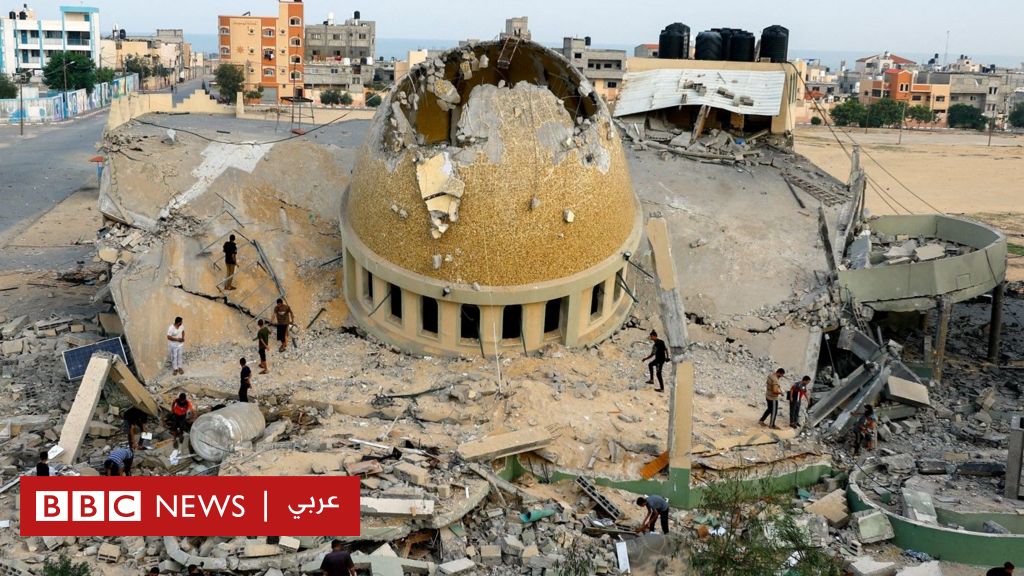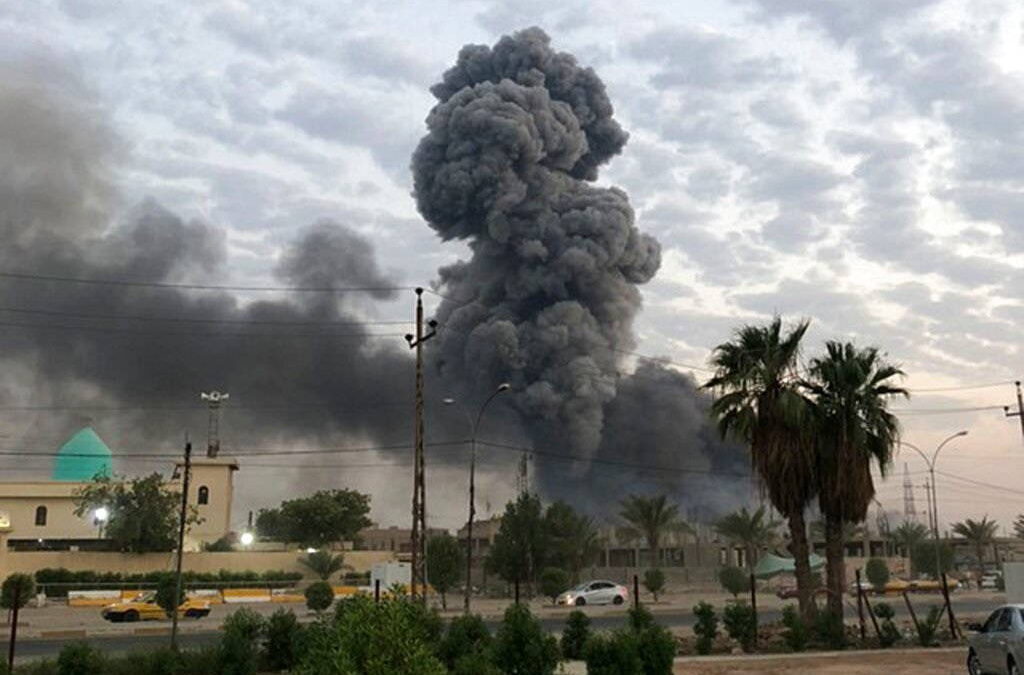Historical Context: Iran Attack Israel

The relationship between Iran and Israel has been marked by deep-seated tensions and mistrust for decades. This complex dynamic is rooted in a confluence of historical, religious, political, and territorial factors.
Religious and Ideological Differences
The historical conflict between Iran and Israel is deeply intertwined with religious and ideological differences. Iran, a predominantly Shia Muslim country, views Israel as an illegitimate entity occupying Palestinian lands. Israel, a Jewish state, perceives Iran as a threat to its existence due to its support for Palestinian militant groups and its rhetoric of destroying Israel. These contrasting religious and ideological perspectives have fueled a long-standing animosity.
The 1979 Iranian Revolution and the Rise of the Islamic Republic
The 1979 Iranian Revolution, which saw the overthrow of the Shah and the establishment of the Islamic Republic, significantly altered the relationship between Iran and Israel. The new Iranian leadership, led by Ayatollah Khomeini, openly declared its opposition to Israel and pledged to support the Palestinian cause. This shift in Iranian policy led to a dramatic escalation of tensions between the two countries.
The Iran-Iraq War (1980-1988)
The Iran-Iraq War, a protracted and devastating conflict, further exacerbated tensions between Iran and Israel. While Israel officially remained neutral, it provided intelligence and military support to Iraq. This involvement heightened Iranian suspicions about Israel’s role in the conflict and fueled anti-Israeli sentiment in Iran.
The Lebanon War (1982)
Israel’s invasion of Lebanon in 1982, aimed at dismantling the Palestine Liberation Organization (PLO), further strained relations between Iran and Israel. Iran, a strong supporter of the PLO, condemned the invasion and provided support to Hezbollah, a Lebanese Shiite militia that emerged as a major force in the conflict.
The First Intifada (1987-1993), Iran attack israel
The First Intifada, a Palestinian uprising against Israeli occupation, saw Iran actively supporting Palestinian resistance groups. Iran provided financial, military, and political support to Hamas and other Palestinian factions, further intensifying tensions with Israel.
The Second Intifada (2000-2005)
The Second Intifada, marked by increased violence and bloodshed, witnessed a renewed escalation of tensions between Iran and Israel. Iran continued to provide support to Palestinian militant groups, while Israel accused Iran of orchestrating attacks and supplying weapons to Hamas.
The Nuclear Issue
The nuclear issue has been a major point of contention between Iran and Israel. Israel, concerned about Iran’s nuclear program, has consistently expressed its opposition to Iran developing nuclear weapons. This issue has fueled fears of a potential military confrontation between the two countries.
The Role of External Actors
The relationship between Iran and Israel has been influenced by external actors, particularly the United States and other regional powers. The United States, a close ally of Israel, has imposed sanctions on Iran and taken a hard line against its nuclear program. Other regional powers, such as Saudi Arabia and the United Arab Emirates, have also expressed concerns about Iran’s influence in the region and its support for regional militant groups.
Current Events and Developments

The relationship between Iran and Israel is characterized by deep mistrust and a history of conflict. Both countries have taken actions that have escalated tensions in recent years, raising concerns about the potential for a wider conflict.
Recent Military and Political Actions
The current political climate in Iran and Israel is marked by a complex interplay of internal and external factors. In Iran, the government is facing economic challenges and political pressure from hardliners. Israel, on the other hand, is navigating a volatile regional landscape, facing threats from various groups, including Hamas in Gaza and Hezbollah in Lebanon. This has led to a series of military and political actions by both countries.
- Iran has been accused of supporting militant groups in the region, including Hezbollah and Hamas, and has been involved in attacks on Israeli targets. The country has also been developing its nuclear program, which has been a source of concern for Israel and the international community.
- Israel has carried out airstrikes in Syria, targeting Iranian-backed forces and facilities. The country has also imposed sanctions on Iran and has been working to isolate it diplomatically.
These actions have been met with strong reactions from both sides. Iran has condemned Israel’s actions as “aggression” and has threatened to retaliate. Israel has accused Iran of “destabilizing” the region and has warned that it will not hesitate to defend its interests.
Key Figures and Organizations
The conflict between Iran and Israel involves a number of key figures and organizations.
- Iran’s Supreme Leader, Ayatollah Ali Khamenei: The highest authority in Iran, Khamenei is a hardliner who has been a vocal critic of Israel. He has called for the destruction of the Jewish state and has supported the development of Iran’s nuclear program.
- Iran’s President, Ebrahim Raisi: A conservative cleric, Raisi has taken a hardline stance on Israel and has vowed to continue Iran’s support for militant groups in the region.
- Israel’s Prime Minister, Benjamin Netanyahu: A right-wing politician, Netanyahu has been a strong advocate for a tough stance against Iran. He has called for the dismantling of Iran’s nuclear program and has authorized airstrikes against Iranian targets in Syria.
- Hezbollah: A Lebanese Shia militant group, Hezbollah is supported by Iran and has been involved in numerous conflicts with Israel. The group is considered a major threat to Israel’s security.
- Hamas: A Palestinian Islamist militant group, Hamas controls the Gaza Strip and has been involved in numerous conflicts with Israel. The group is also supported by Iran.
Potential Future Scenarios

The conflict between Iran and Israel is a complex and multifaceted issue with the potential for significant ramifications for the region and the world. Predicting the future is inherently challenging, but examining various potential scenarios can provide valuable insights into the potential trajectories of this conflict.
Potential Scenarios for Future Developments
Several factors could influence the future course of the Iran-Israel conflict, including economic sanctions, international diplomacy, and regional power dynamics.
- Increased Tensions and Military Escalation: A significant escalation of tensions could lead to a full-scale military conflict between Iran and Israel. This scenario could have devastating consequences for both countries and the broader region, potentially leading to a regional war with significant civilian casualties and economic disruption.
- Continued Diplomatic Efforts and De-escalation: International diplomatic efforts, particularly from major powers like the United States and European Union, could play a crucial role in de-escalating tensions and fostering dialogue between Iran and Israel. This scenario would involve a concerted effort to address the underlying issues driving the conflict, such as Iran’s nuclear program and Israel’s security concerns.
- Regional Power Dynamics and Proxy Conflicts: The conflict between Iran and Israel is often intertwined with regional power dynamics, involving proxy conflicts and regional alliances. For example, the ongoing civil war in Syria has provided a battleground for Iranian-backed forces and Israeli airstrikes. Continued regional instability could further exacerbate tensions between Iran and Israel, potentially leading to a wider regional conflict.
Implications of a Potential Military Escalation
A military escalation between Iran and Israel would have significant consequences for the region and the world.
- Regional Instability and Humanitarian Crisis: A full-scale military conflict would likely lead to widespread instability and a humanitarian crisis, with potential for mass displacement of civilians, destruction of infrastructure, and economic devastation.
- Global Energy Market Disruptions: Iran is a major oil producer, and a conflict could disrupt global energy markets, leading to price increases and economic instability.
- Increased Risk of Nuclear Conflict: While neither Iran nor Israel has publicly stated a willingness to use nuclear weapons, a full-scale military conflict could escalate tensions to a point where the risk of nuclear escalation becomes a serious concern.
Hypothetical Scenario for a Peaceful Resolution
A peaceful resolution to the Iran-Israel conflict would require addressing the core issues driving the conflict and building trust between the two sides.
- Addressing Nuclear Concerns: A negotiated solution to Iran’s nuclear program would be crucial. This could involve a combination of international monitoring, limitations on Iran’s nuclear activities, and guarantees of Israel’s security.
- Resolving the Palestinian-Israeli Conflict: The Palestinian-Israeli conflict is a major source of tension in the region, and any resolution to the Iran-Israel conflict would need to address this issue. A two-state solution, with a viable Palestinian state alongside Israel, could help reduce tensions and create a more stable environment.
- Building Trust and Dialogue: Establishing a framework for dialogue and trust-building between Iran and Israel would be essential. This could involve direct negotiations, track-two diplomacy, and confidence-building measures.
Iran attack israel – The recent attacks between Iran and Israel have heightened tensions in the region, raising concerns about a potential escalation of conflict. To understand the complexities of this ongoing situation, it’s crucial to delve into the historical context of the relationship between these two nations.
For a comprehensive overview of the historical tensions and conflicts, you can visit israel iran news. The current attacks are a stark reminder of the delicate balance of power in the Middle East and the potential for instability to quickly escalate.
The recent attacks by Iran on Israel have raised tensions in the region, prompting international concern. Meanwhile, on a different note, a shocking incident occurred when a helicopter crashed into a Hilton hotel , causing significant damage and raising questions about safety protocols.
This incident, though unrelated to the Israel-Iran conflict, serves as a reminder of the unpredictable nature of events that can unfold at any time.
